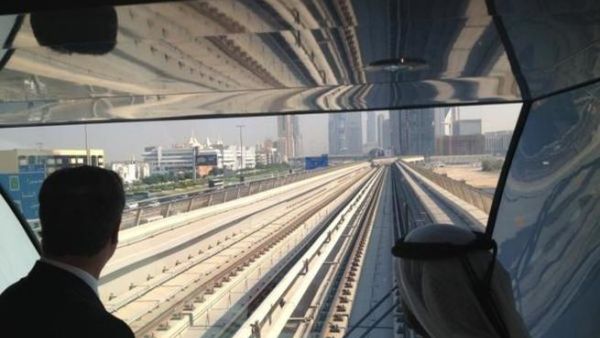On Monday British Prime Minister, David Cameron, visited Abu Dhabi for the start of his “low-key” trip to the region. He was keeping it on the sly, according to media reports, because the aim of the visit was to buy and sell arms.
The Prime Minister was looking to persuade the Gulfis to buy 60 Typhoon jets in a deal reportedly worth more than £3bn (US $4.8billion)
Although the PM’s public relations team strongly denied that there was anything underhand to their boss’s movements, dealing weapons is hardly a highpoint for British foreign relations. However, according to the business press, there was also another, more subtle reason behind the trip.
The UK, along with their ally the US, have a long history of Middle East oil deals and this latest visit was no exception. Cameron began the jaunt with a speech to the students of Zayed University in Abu Dhabi about the ‘Arab Spring.’
The Western leader preaching to the Arab youth about the revolutionary movement apparently held no irony for him and he remained unfazed by the buzz of his Blackberry halfway through the lecture. Question and answer session followed and the British PM cannot have been too upset by being addressed as ‘Your Excellency’, a term usually reserved for the Emirate’s leaders.
The Arab Spring talk went off without incident but Cameron’s support for the revolutionary movement has landed him in hot water in the past. The Gulf nation has been spring-free thus far and would like to keep it that way. They were reportedly also upset by a BBC Arabic report on an alleged terrorist cell thriving in the UAE.
All these grievances manifested themselves in the latest British Petroleum (BP) deal. The UK oil giants have been operating out of Abu Dhabi since 1939 but when their concession came up for renewal this year, they were excluded from the list of companies allowed to bid for the tender.
The Gulf nation is a key asset for the multi-national, who were set to lose around 3.5% of their total global production if the UAE kept their promise to keep them out of the bidding.
Most commentators believe the exclusion had nothing to do with BP’s performance but was more likely a reflection of the political tensions between the two nations. So a visit to the Emirate by the British PM was a clear signal that he was looking to patch things up and get the barrels flowing again.
Next on the list of countries to kiss and make-up with is Saudi Arabia. On his three-day tour, Cameron will be stopping by to continue the weapons deals on Tuesday. Saudi too is sulking about Britain’s behavior after a parliamentary committee decided to “investigate” the nation’s relationship with the desert Kingdom. They are also no fans of the Arab Spring and the British PM’s apparent support for it.
In order to pander to Saudi sensitivities, Cameron is restricting media coverage and has publicly said he is looking to build a "reinvigorated partnership" between Britain and the region's leaders. No doubt the threat of broken oil deals and weapons sales is never far from his mind.
What do you think about the British PM's visit to the region? Is it all just arms and oil? Tell us what you think below.








